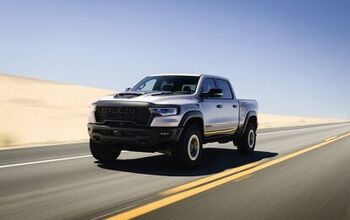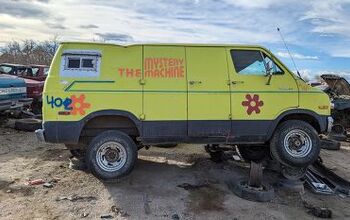Costa Rica Unveils Most Burdensome Speed Camera Program Yet
Since September 8, motorists in Costa Rica have been racking up speed camera fines worth 308,295 colones (US $600) each. Sixteen speed cameras have been flashing around the city of San Jose at a rate of a thousand per day as part of the brand new program. Those fines — among the world’s highest — are not being mailed to vehicle owners, as is the case elsewhere. Instead, motorists are expected to check their plate number on a regular basis to see if they need to pay up.
On September 26, the first set of license plates was published in the form of a 120-page list in La Gaceta, the government’s official journal. The alleged violations are sorted by day, so all of the country’s vehicle owners must scan each day of the week looking for their vehicle. Those among the 15,429 plates that have been listed so far have until October 17 to come up with the $600 in cash.
That is a significant burden in a country where the per capita income is $11,300, or less than a quarter of the earning power in the US. In response to the demand for payment options, Banco Popular is offering speed camera loans that pay off the ticket over five years for a monthly payment of 8588 colones (US $16.70).
The impact was felt in a big way by a 22-year-old woman who found she had been ticketed a dozen times in the first publication of notices. She is expected to come up with 3,699,540 colones (US $7188), or about seven months’ worth of her salary. She is appealing her fines.
President Laura Chinchilla has felt the heat from the public and is now calling for the fine to be lowered. The government set up the controversial notification system after finding no way to reliably mail citations in a country that does not have a system of street addresses. Since colonial times, directions have been given by reference to landmarks, as street signs are rare. Officials have been moving to implement a standardized address system for several years in anticipation of an automated ticketing program.
A copy of the first list of license plates is available in a 900k PDF file at the source link below.
Source:
La Gaceta No. 184 (Costa Rica, 9/26/2011)
[Courtesy: Thenewspaper.com]
More by The Newspaper
Latest Car Reviews
Read moreLatest Product Reviews
Read moreRecent Comments
- V8fairy Not scared, but I would be reluctant to put my trust in it. The technology is just not quite there yet
- V8fairy Headlights that switch on/off with the ignition - similar to the requirement that Sweden has- lights must run any time the car is on.Definitely knobs and buttons, touchscreens should only be for navigation and phone mirroring and configuration of non essential items like stereo balance/ fade etc>Bagpipes for following too close.A following distance warning system - I'd be happy to see made mandatory. And bagpipes would be a good choice for this, so hard to put up with!ABS probably should be a mandatory requirementI personally would like to have blind spot monitoring, although should absolutely NOT be mandatory. Is there a blind spot monitoring kit that could be rerofitted to a 1980 Cadillac?
- IBx1 A manual transmission
- Bd2 All these inane posts (often referencing Hyundai, Kia) the past week are by "Anal" who has been using my handle, so just ignore them...
- 3-On-The-Tree I was disappointed that when I bought my 2002 Suzuki GSX1300R that the Europeans put a mandatory speed limiter on it from 197mph down to 186mph for the 2002 year U.S models.


































Comments
Join the conversation
I rented a Suzuki Samarai and spent a few weeks driving around the western half of Costa Rica in 1995. The only thing that kept me from going back was the corrupt law enforcement that we encountered practically every day for shake downs or attempted shake downs. I feel for the Costa Ricans, as most of them were very nice, but I'm not going anywhere near such a backwards anti-car regime. It sounds like Washington DC on a national scale. They're motive for aspiring to national mail delivery was to collect automated traffic fines that would be an unreasonable burden on 85% of their population? Tyrannny.
It does seem like installing speed cameras before you have a reliable postal system is a serious failure of prioritization. And doesn't "President Laura Chinchilla" sound like a muppet character?